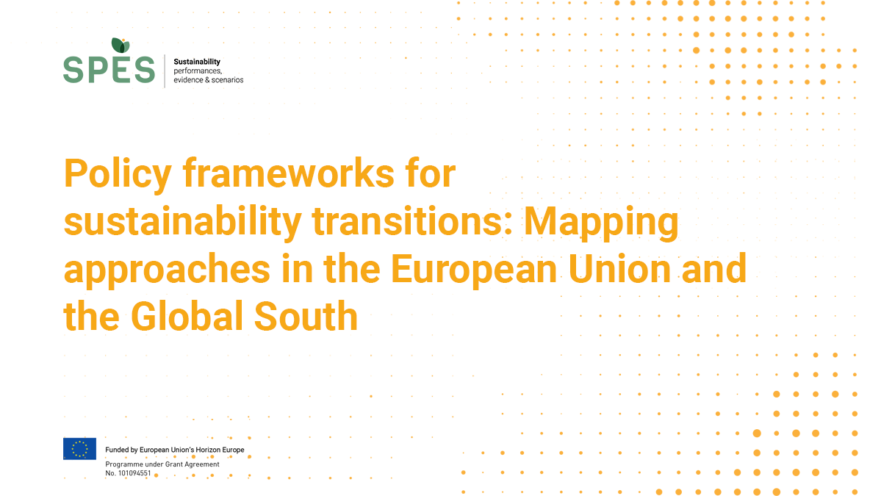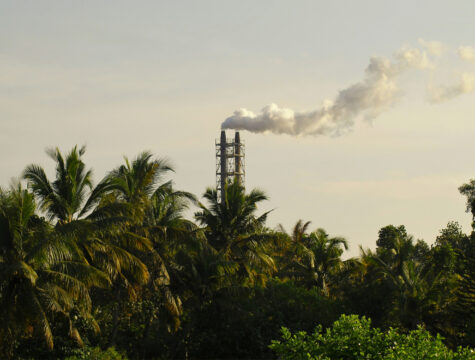How do the EU policies integrate and articulate the notion of sustainability transition? There are some significant differences in the development and transition challenges and policy perspectives of low- and middle-income regions in the Global South when compared with the internal sustainability transition agenda of the EU. Furthermore, in the EU transition policy agenda, the global perspective generally sits in the backseat. Thus, the general objective of the SPES Report 2.2 “Policy frameworks for sustainability transitions: Mapping approaches in the European Union and the Global South” is to map – quantitatively and qualitatively – the main existing policy frameworks and strategies for sustainable development (SD) and sustainability transitions (ST) in the EU.
Sustainable Development is a dynamic and evolving field that has gained increasing importance in policy, business, and academia. It has led to the development of multiple tools, indicators, and frameworks for assessing sustainability and guiding decision-making processes.
Sustainability Transition is another concept that has become important in the last two decades. It refers to a systemic shift in societal practices, behaviours, and structures towards more sustainable and environmentally responsible modes of operation.
The report is divided in three parts. In the first part, authors measure quantitatively the prominence of the notions of sustainable development and sustainability transition in EU policy. Based on a structural topic modelling exercise, they identify the main themes addressed in the EU publications that are classified under the sustainable development heading.
The second part presents a qualitative mapping and assessment of thirteen strategies or policy initiatives that reflect current EU policy efforts to foster the transition to an economic and societal model that is consistent with the five pillars of the Sustainable Human Development paradigm and the SPES framework.
The third part switches the geographical perspective from the European continent to the Global South. The purpose is to give an overview of similarities and differences in the sustainability challenges facing different Global South regions. This analysis serves as a reminder that even when the main question is on how to develop policies for a fair, inclusive and ecologically sustainable transition in Europe, part of the process should also be to ask what consequences European choices might have in poorer regions of the world. To address this question the first step is to have some knowledge of the transition policy frameworks and challenges that exist in these regions, and the below discussion offers a contribution to this end.
To read the full document of the Report
The SPES Report 2.2 “Policy frameworks for sustainability transitions: Mapping approaches in the European Union and the Global South” is part of Task 2.2 “Policy mapping” and has been written by Mi Ah Schoyen, Team leader and researcher OSLOMET, Jacopo Cammeo, Researcher of the SPES Project University of Florence, Sylvain Eloi Dessy, Researcher of the SPES Project PEP, Mona Gjerstad, Assistant researcher of the SPES Project OSLOMET, Sandra Allen, Assistant researcher of the SPES Project OSLOMET, Therese Dokken, Researcher of the SPES Project OSLOMET, Luca Lodi, Researcher of the SPES Project University of Florence.




